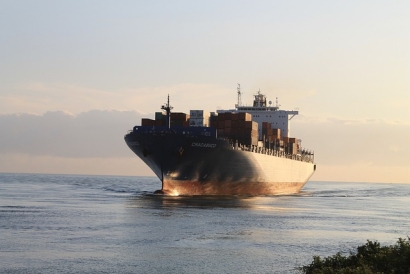
Pedro Aguilar and Dr Bodo Groß from IZES gGmbH a German based partner on the Belfast Met led EU hydrogen project GenComm have pointed out that efforts and investments on alternative powertrains have been focused almost exclusively on the passenger car sector, leaving aside sub sectors of the transport economy such as heavy-duty vehicles, maritime cargo ships and aviation that together represent almost the same amount of emissions that passenger cars release worldwide.
In their new paper the authors warn that the transportation sector may become the most polluting economy sector worldwide unless more action is taken to foster transition to alternative powertrains and clean synthetic fuels.
Looking to the future the authors say, “The decarbonizing approaches for the maritime shipping and aviation sectors are still in a very early stage of development, therefore, it is necessary that governments worldwide embark on the task of boosting innovation, research and development in these sectors.
“Turning the electricity generation sector away from fossil fuels is paramount to achieve the full potential reduction on emissions that BEVs and green hydrogen have.”
While there is no doubt that hydrogen can help decarbonize the heavy-duty transport sector in Ireland decarbonizing the aviation sector and maritime shipping has its challenges.
In terms of decarbonizing aviation, the authors point out, “The potential reduction in emissions in this area can be further improved if other vehicles directly tied to the airports like shuttle busses and taxis are taken into consideration.
“Another path holding significant contributions to the decarbonization of the sector is that carried out by the program IRIS from the European Space Agency.
“This program aims to replace the traditional checkpoint-based navigation of modern commercial aviation for a satellite-based approach that allows for improved routing and reduced flight congestions carrying a potential reduction in fuel consumption of up to 10% for typical European journeys.”
Another potential alternative for curbing emissions from airplanes is the use of Sustainable Aviation Fuels but the authors admit that aviation is itself a heavy regulated industry.
The authors also looked at the area of decarbonizing maritime shipping. They stressed, “Maritime cargo ships are considered to be the transportation sub sector that consumes the largest amounts of fuels worldwide, therefore the International Maritime Organization is aiming to set more restrictive rules to reduce CO2 emissions from this type of vehicle.”
Reaching the conclusion that the transport sector is lagging behind other sectors of the economy regarding reductions of CO2 emissions and may soon become the most polluting sector of the EU group the authors argue that government policies need to change. New initiatives and clean fuels such as hydrogen can help in the long run.
GenComm Program Manager Paul McCormack has welcomed the new research by the GenComm Partner saying, “We are at the global threshold of a clean energy future. While there are many opportunities there are many short-term challenges that need addressed.
“Clean Hydrogen will play an important role in the energy transition journey away from fossil fuels especially in mobility solutions, long-haul transport and maritime use. We need innovators delivering competitive hydrogen supply chains especially among end-users, delivering secure, resilient, and sustainable clean energy solutions. “

